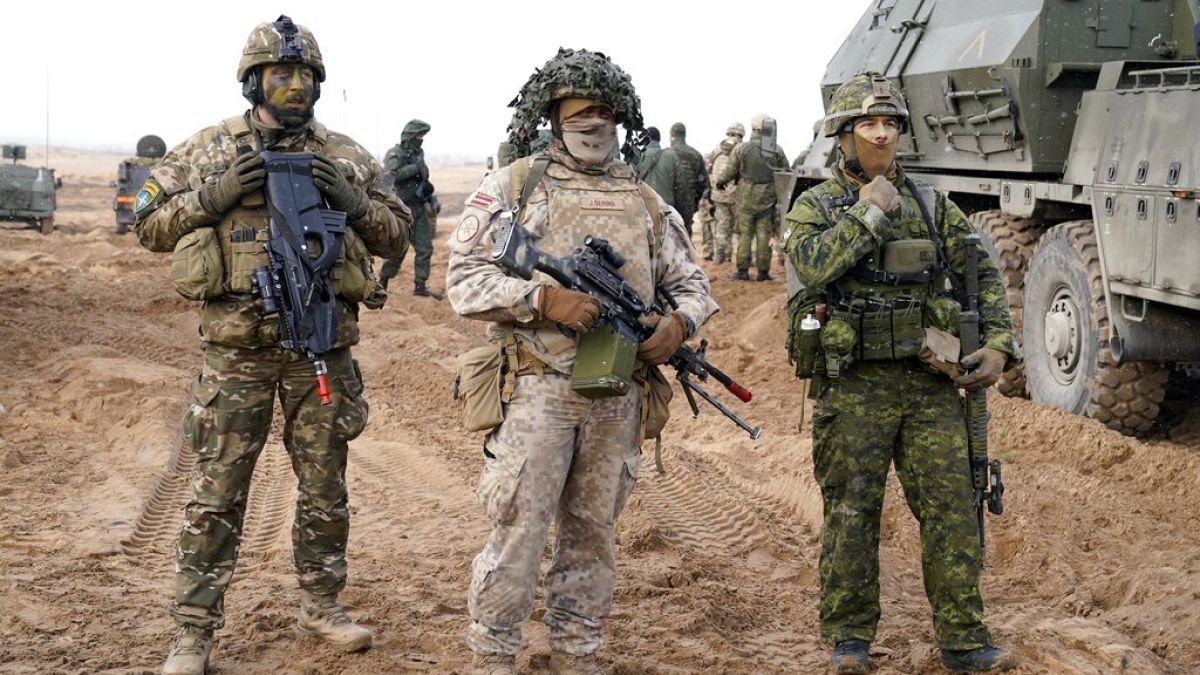In a recent interview with Euronews, three voluntary soldiers shared their reasons for joining up and their preparations to defend their Baltic homeland from potential Russian aggression. One of these soldiers, Edvards Puharts, explained that the continuous stream of news regarding conflict in Ukraine led him to sign up for military conscription in Latvia. Puharts, who will complete his training at the forest-studded Ādaži camp in May, feels more prepared and knowledgeable about the dynamics of war as a result. This renewed focus on military readiness in Latvia comes in response to Russia’s invasion of Ukraine, with the government re-imposing conscription to bolster its defense capabilities.
Amid concerns of a revisionist Russia, Latvia reinstated its voluntary military conscription policy in response to the changing security landscape in Eastern Europe. With fears of Russian aggression looming, the decision was made to require all men aged 18 to 27 to complete 11 months of military training. This move was seen as crucial for Latvia’s survival and a deterrent against potential threats from Russia. The public’s support for conscription has been increasing, with many acknowledging the importance of being prepared to defend the country given its proximity to Russia.
The renewal of the conscription policy in Latvia has led to an influx of volunteers, sparing the need for compulsory conscription of eligible males. This surge in volunteerism has alleviated some of the initial logistical challenges of accommodating and training a growing number of recruits. While initial training has been relatively smooth, concerns remain about retaining volunteers, with only a third expected to sign five-year contracts following completion of their training. Building infrastructure and providing quality training will be ongoing challenges for Latvia as it seeks to maintain a capable and prepared military force.
One volunteer, Orests Rullis, expressed his motivation for joining the military as a means of acquiring discipline and leadership skills. Despite concerns about potential Russian aggression, the rigorous training and strategic exercises have helped calm his fears. The decision to volunteer for military service has empowered Rullis and given him a newfound sense of confidence in Latvia’s ability to defend itself. The significant investment in the military by the Latvian government reflects a commitment to enhancing state defense capabilities and ensuring preparedness for any potential threats.
Latvia’s Ministry of Defense has allocated substantial funding towards strengthening defense infrastructure and boosting recruiting figures in the coming years. With a focus on increasing the number of recruits through both compulsory and voluntary conscription, the government aims to enhance its military readiness and deterrence capabilities. Recent reports of escalating tensions with Russia have further underscored the importance of military preparedness and strengthening societal will to defend the nation. By investing in defense capabilities and recruiting efforts, Latvia seeks to ensure its ability to address any potential threats effectively.
For former pacifist Gus Pētersons, joining the military provided a sense of purpose and calm amidst fears of potential conflict. Inspired by the need to take action in the face of escalating tensions, Pētersons found solace in the structured training and discipline offered by the military. Despite initial reservations from his family, he proudly shares his achievements in the National Guard, including completing the demanding Beret March exercise. While Pētersons plans to transition back to civilian life after completing his military service, the training and experiences have equipped him with greater confidence and a sense of preparedness for any future challenges.











